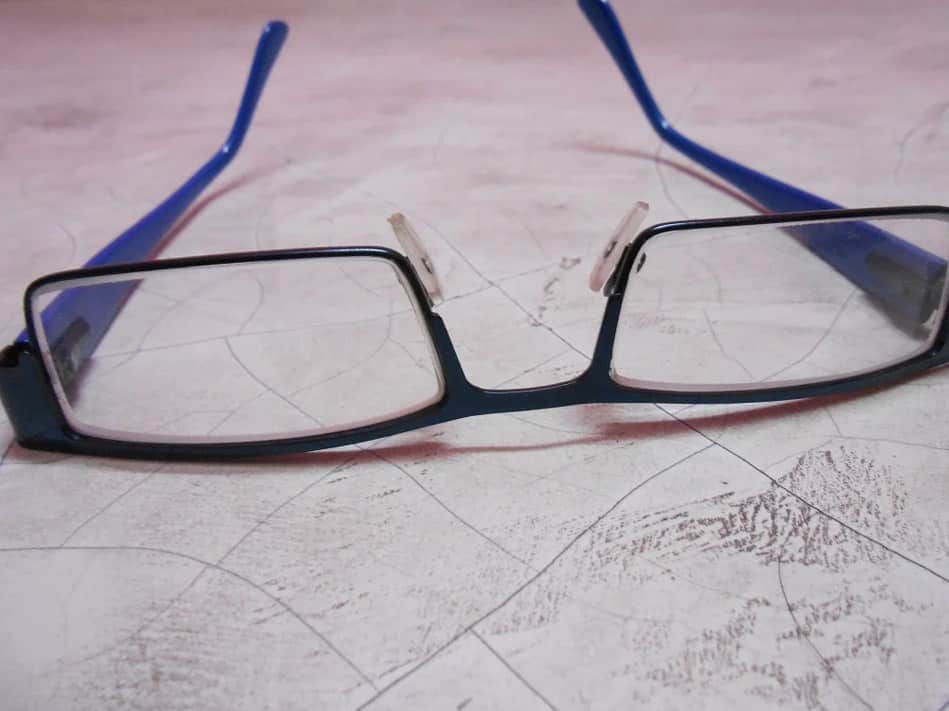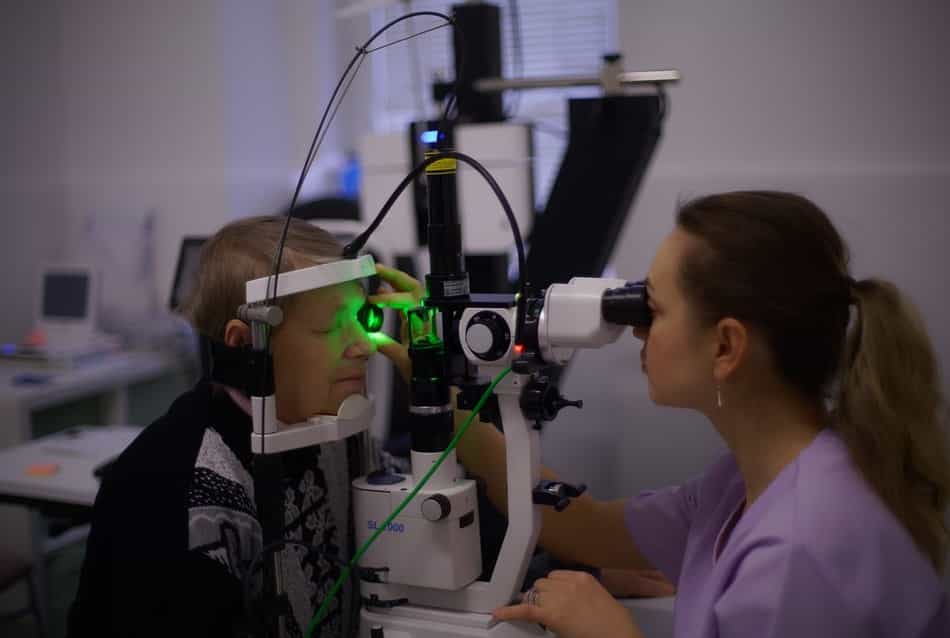What Questions Should I Ask My Eye Doctor ?
Knowing about eye health and care can sometimes seem difficult. We consulted with an Optometrist near Aurora il to answer some of the most commonly asked questions from lots of people. Along with this information, it is constantly significant to check with your Eye Care Professional who will provide you thorough information about your eye health.
Q: Who is an Optometrist?
A professional Optometrist (OD) has an optometry degree and is qualified to practice optometry. An eye doctor has had a minimum of six years of education and training further than high school and is capable to regulate the need for contact lenses and glasses; recommend visual correction; and screen for some eyesight issues.

Q: How does the eye work?
The forward-facing parts of the eye are clear and let light to cross. The light moreover passes over the large space in the center of the eye called the transparent cavity. The transparent cavity is full of a clear, jelly-like material called a vitreous gel. The light is focused by the lens and the cornea onto a thin coating of tissue called the retina, which shelters the back inside the wall of the eye. When the attentive light hits the retina, a picture is captured. Messages about this picture are directed to the brain through the optic nerve. This is the way we see.
Q: When should my child’s eyes be examined?
Almost all physicians test vision as part of a child’s medical inspection. They possibly will refer a child to an Optometrist, if there is any indication of an eye illness. Eyes expert endorses the major vision screening occur in the hospital as part of a newborn baby’s release examination. Visual function moreover should be tested by the physician throughout repetitive well-child exams. Later alignment and amblyopia screenings should be done at three years of age and then every year after school age.
Q: When should an adult’s eyes be examined?
Adult eye examinations should be done regularly.
- Early adults (ages 20 – 39) must have their eyes tested every three-five years.
- Adults ages (ages 40 – 64) should have their eyes tested every two-four years.
- Senior citizens (over 65 years of age) should have their eyes inspected every one-two years.
Q: Is pink-eye spreadable?
Yes, virus-related conjunctivitis (pink-eye) is extremely common and is very spreadable. Avoid touching eyes with your hands, wash hands regularly, never share towels, and evade work, school, or daycare activities for a minimum of five days or as long as the release is present.
Q: What is the difference between nearsightedness and farsightedness?
The medical term for nearsightedness is myopia, curable with contact lenses, glasses, or, in certain cases, refractive surgery. The medicinal term for farsightedness is hyperopia, curable with contact lenses, glasses, or, in certain cases, refractive surgery. According to Optometrist Aurora il, Related conditions (also curable with contact lenses or glasses) comprise astigmatism and presbyopia.
Q: What is visual acuity?
Acuity is the degree of the eye’s aptitude to distinguish the smallest recognizable symbol or letter, its particulars, and shape, typically at a distance of 20 feet. This extent is typically given in a fraction. So, faultless vision is 20/20. An optometrist states that If your vision is 20/60, that indicates what you can see at a distance of 20 feet, somebody with accurate vision can see at a distance of 60 feet.
Q: What is legal blindness?
You are lawfully blind when the top fixed central insight is less than 20/200 in your better eye, or your side vision is tapering to 20 degrees or fewer in your better eye. Even if you are lawfully blind, you could still have some valuable vision. If you are lawfully blind, you possibly will qualify for certain government welfares.
Q: What is visual impairment?

If none of your eyes can see improved than 20/60 deprived of development from contacts or glasses, you possibly will be defined as visually weakened. Furthermore, bad night vision, partial side vision, double vision, and loss of eyesight in one eye possibly will moreover define visual impairment.
Q: What is low vision?
Low vision is a word telling a level of vision lower than normal (20/70 or worse) that cannot be adjusted with normal glasses. Low vision is not similar to blindness. People with low vision can utilize their sight. Though, low vision possibly will obstruct the routine of daily activities, for example driving or reading.
Q: Can eyes be transplanted?
No. Presently, there is no method to transplant a complete eye. On the other hand, corneas have been positively transplanted for numerous years.
Q: Why do eyes need to be dilated?
Having your eyes dilated lets our doctor of optometry plainly understand the back of your eye, the small blood vessels, optic nerve, and retina. This checkup helps check for and identify glaucoma, cataracts, macular degeneration, and retinal detachment. If the small blood vessels are leaking in the back of the eye, it could specify diabetes or high blood pressure.
Q: What is glaucoma?
Glaucoma is an eye disease that can be the reason for blindness, if left unprocessed. It is categorized by a build-up of pressure in the eye that disturbs the optic nerve. Timely finding and cure can help stop blindness and slow the development of the disease.
Q: What is macular degeneration?
Macular degeneration is common in mature adults. It is described as damage to central vision because of retina deterioration. It can be triggered by age, cholesterol, and high blood pressure, and heredity. There are treatments, counting injections, operations, and vitamin supplements that can relax the development of the illness.
Q: What causes myopia?
Myopia is initiated by a mixture of environmental factors and heredity. Studies by eye doctors near Aurora reveal that if we can move the focal point before the mid-peripheral retina we can slow the development of myopia. The more use of cell phones and computers, in addition to less time outdoors is possibly a causal factor.
Q: What is Diabetic Retinopathy?
It is a communal complication of diabetes that happens when small blood vessels in the retina are injured by the load of sugar they are carrying. Diabetic Retinopathy is the foremost reason for blindness in American adults, and the unhappiest part of that statistic is that the maximum of these cases could have been stopped with regular eye exams. All people dealing with diabetes must have an exam with dilated pupils as a minimum once a year.

Q: Can crossed eyes be treated?
Strabismus (crossed eyes) does not recover on its own, but it can be more effortlessly corrected in little children. That’s why it is imperative for your child to have an early eye exam, first when he or she is a baby, and then once more by age two.
Q: Will eating carrots help me to maintain a healthy vision?
Eating carrots will offer you a small amount of vitamin A required for good vision. Vitamin A can moreover be found in cheese, egg yolk, milk, and liver.
Q: Will looking straight at the sun damage my eyesight?
Looking directly at the sun may not simply source headache and distorts your vision momentarily, but it can moreover cause lasting eye damage. Any disclosure to sunlight adds to the increasing effects of ultraviolet radiation on your eyes. UV contact has been connected to eye disorders for example corneal dystrophies, macular degeneration, and solar retinitis.
Q: Why is the regular exam important?
Irrespective of your age or bodily health and an inclusive eye exam is imperative for identifying any eye problems at their initial stages. Even if you have 20/20 vision, an eye examination can be a degree of complete health. Best Expert eye doctor near Aurora il can realize signs of brain tumors, cardiovascular, diabetes, disease stroke, manifold sclerosis, and more, over an eye exam.
